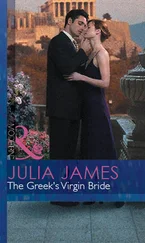Julia James - The Lady Most Willing
Здесь есть возможность читать онлайн «Julia James - The Lady Most Willing» весь текст электронной книги совершенно бесплатно (целиком полную версию без сокращений). В некоторых случаях можно слушать аудио, скачать через торрент в формате fb2 и присутствует краткое содержание. Жанр: Старинная литература, на английском языке. Описание произведения, (предисловие) а так же отзывы посетителей доступны на портале библиотеки ЛибКат.
- Название:The Lady Most Willing
- Автор:
- Жанр:
- Год:неизвестен
- ISBN:нет данных
- Рейтинг книги:4 / 5. Голосов: 1
-
Избранное:Добавить в избранное
- Отзывы:
-
Ваша оценка:
- 80
- 1
- 2
- 3
- 4
- 5
The Lady Most Willing: краткое содержание, описание и аннотация
Предлагаем к чтению аннотацию, описание, краткое содержание или предисловие (зависит от того, что написал сам автор книги «The Lady Most Willing»). Если вы не нашли необходимую информацию о книге — напишите в комментариях, мы постараемся отыскать её.
The Lady Most Willing — читать онлайн бесплатно полную книгу (весь текст) целиком
Ниже представлен текст книги, разбитый по страницам. Система сохранения места последней прочитанной страницы, позволяет с удобством читать онлайн бесплатно книгу «The Lady Most Willing», без необходимости каждый раз заново искать на чём Вы остановились. Поставьте закладку, и сможете в любой момент перейти на страницу, на которой закончили чтение.
Интервал:
Закладка:
Dugald apparently didn’t think of it, and she hadn’t warned him because—as she kept trying to point out, to no avail—she never planned to welcome him or anyone else to come through her window.
In the aftermath of the tragedy, she often found herself outraged at the universal rejection of her account of the event. Her own father had racketed about the house for months, moaning about how she had besmirched the family name.
“So you say,” he would bellow, in response to her protests. “What was poor Dugald doing at your window, then? Sharper than a serpent’s tooth is a female child! He wouldna climbed your ivy, you silly goose, if you hadna turned a carnal eye in his direction. Ach, poor Dugald, poor, poor Dugald.”
There the argument would stop, because Fiona didn’t allow herself to comment whenever the chorus of poor Dugald reached deafening proportions. She knew perfectly well that she had not thrown Dugald any come-hither glances. In fact, she wasn’t even sure what such a glance would look like.
She wouldn’t have learned it from Dugald. He seemed to regard her as a pot of gold rather than a nubile woman, at least until the last evening of his life. In fact, she’d thought him more in pursuit of her fortune than her person.
But that night she had refused to kiss his whiskey-soaked mouth, only to find herself shoved against a brick wall and forcibly dealt a wet kiss accompanied by a rough squeeze to her breast. The very memory made her shudder. She had slapped Dugald so hard that he reeled backward, after which she had run into the ballroom—with every intention of breaking her betrothal on the morning.
As for what he was doing climbing up to her window later that night . . . she could only think that he had decided to take matters into his own hands. Presumably, he had planned to force her to accept the marriage, and the only thing that had saved her virtue was the fragility of the ivy.
She certainly could not suggest such a terrible thing aloud. God forbid she would dishonor a man’s name after death by suggesting he might have had something so sordid as rape in mind. Poor Dugald had killed himself, to her mind.
Besides, she came to think of herself as lucky. What was ruination compared to being married to a beast of a man? She proceeded to shape a life that was happily husband-free, regularly offering prayerful thanks to her late mother for leaving her the fortune that made such a decision possible.
By five years after the “incident,” as her father called it, most people had stopped crossing the street when she approached. The last two seasons she had even ventured to London as Marilla’s chaperone; her half sister seemed likely to cause a nasty scandal if she wasn’t closely watched.
And though Fiona was not precisely fond of her sister—it was hard to imagine who could be—she did love her. Somewhat.
In short, during the last five years Fiona had arrived at the conclusion that the fatefully flimsy ivy had preserved not only her virtue, but her happiness.
A wealthy, unmarried woman has all the time she likes to read whatever she wishes. She can learn cheese making and experiment with medicinal salves for the pure pleasure of it. She can brew dyes from red currants, and then try making wines from the berries instead.
Freed from the need to hunt and catch a man, she could eschew crimping irons and chilly, yet seductive, gowns. She need not blunder around a ballroom pretending that she has perfect eyesight; instead, she can balance a pair of spectacles on her nose and accept the fact that she resembles someone’s maiden aunt.
Which status she would presumably attain, someday.
She was free .
“Please do not spontaneously offer either gentleman a kiss,” she said now. “From where I stood, Oakley looked mortified rather than flattered.”
“Kissing means very little.” Marilla tossed her curls. “You’ve been out of society too long, Fiona. I can assure you that he understood it as a jest, even if you did not.”
Fiona silently counted to five. Then: “If kissing means very little, I still think it would nevertheless be better to allow a gentleman to kiss you, if he shows the inclination, rather than chasing him yourself.”
“As if I would do something that fast!” Marilla caught a glimpse of herself in the glass and froze for a moment to coax an errant lock into place.
She was extraordinarily beautiful; you had to give her that. Fiona crossed the room and picked up a hairbrush to shape the long lock that fell down Marilla’s back. Her sister accepted the attention as her due; she was smiling at herself with a tilt of her head that she likely considered sophisticated.
Indeed, Marilla was so exquisite that men could hardly stop themselves from falling at her feet . . .
Though they seemed to fall out of love just as quickly, once they came to know her. As Fiona had bluntly told their father on Marilla’s debut, he should have matched her quickly, before news of her temperament circulated among eligible men.
Regrettably, that hadn’t happened, though Marilla was only beginning to notice the lack of offers; her vanity was such that she deemed virtually all potential suitors beneath her notice.
“We have only a few days before the pass is cleared,” Fiona told Marilla, giving her hair a little tug to get her attention. “Perhaps three or four . . . five at the outside.”
“I know that,” her sister said, twitching her curl free.
“I have no doubt but that Rocheforte or Oakley will fall in love with you. But I would suggest that you make sure of the man before the three days are up.”
“Rocheforte?” Marilla snorted. “Granted, he is very handsome and he’s reputed to have a sportive disposition—in every way. But he could have fled back to France for all I’ve seen him. He hasn’t spent more than five minutes with us. ’Sides, I want a title. A real title, not some French sham.”
“All right, Oakley will fall in love with you,” Fiona said patiently. “But not unless you play your cards right.”
“Are you implying that I cannot do so?” Marilla cried. “That nun of an English heiress can’t hold a candle to me. Though I was shocked to see the duke fall prey to that dreadful Catriona Burns. I’ve never liked her.”
“I have always liked her,” Fiona said. “She’s exceedingly nice.”
“My point is that Oakley will not pose any particular challenge for me.”
“Of course not.” There was no point in taking issue with Marilla’s overweening self-regard. It was as infinite as a starry night. “Do try to control your temper. Be docile and chaste.”
“Why should I be docile? I hate to fawn over an Englishman. I—”
“Because you want to marry into the peerage,” Fiona interrupted. “The English aristocracy. Though I have to say that Rocheforte’s title is an ancient and honored one, not a sham in any sense of the word.”
“That’s right,” Marilla agreed, the little smile coming back to her mouth. “I do want to marry an aristocrat. But I don’t care how old Rocheforte’s title is. He could crawl on his knees across Scotland begging for my hand, and I wouldn’t marry him. The man was too superior to join us for games after supper. I’m sure I don’t know what right he has to be so haughty; the duke and the earl are perfectly happy to join us.”
“In order to marry the earl, you must be docile, courteous, and gentle , as in gentlewoman .” Fiona felt like a governess reciting the alphabet, but that was the reality of being Marilla’s older sister.
“Gentleness doesn’t suit me.” Marilla’s nose wrinkled. One thing you could say about her was that she did not bother to lie to herself.
Читать дальшеИнтервал:
Закладка:
Похожие книги на «The Lady Most Willing»
Представляем Вашему вниманию похожие книги на «The Lady Most Willing» списком для выбора. Мы отобрали схожую по названию и смыслу литературу в надежде предоставить читателям больше вариантов отыскать новые, интересные, ещё непрочитанные произведения.
Обсуждение, отзывы о книге «The Lady Most Willing» и просто собственные мнения читателей. Оставьте ваши комментарии, напишите, что Вы думаете о произведении, его смысле или главных героях. Укажите что конкретно понравилось, а что нет, и почему Вы так считаете.












